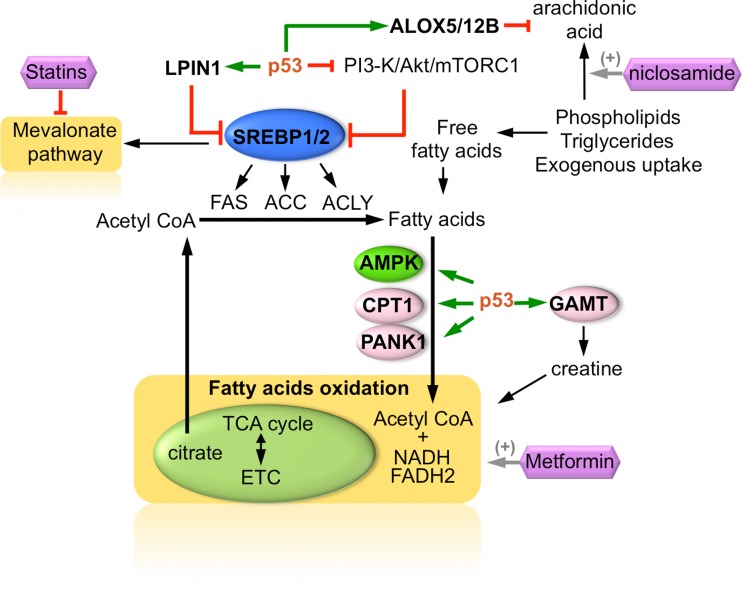Figure 2.
Regulation of fatty acid oxidation, mevalonate pathway, and arachidonic acid metabolism by p53. SREBP transcription factors are regulated by p53 through multiple mechanisms, with an overall effect on inhibiting de novo fatty acid synthesis and the mevalonate pathway. Statins inhibit HMG-CoA synthase and are shown to inhibit growth of mutant p53 tumors, as well as restore normal mammary architecture in vitro. p53 promotes the fatty acid oxidation pathway in an AMPK-dependent manner as part of its metabolic remodeling activity in response to, for example, low glucose conditions. Metformin stimulates AMPK activity and β-oxidation of fatty acids, promoting survival in cells with wild-type p53, and impairs growth of p53-deficient cells. Niclosamide stimulates the production of arachidonic acids from phospholipids turnover. p53–ALOX5/12B axis protects cells from arachidonic acid (AA)-induced apoptosis, whereas cells lacking wild-type p53 are susceptible to AA-induced metabolic catastrophe.

